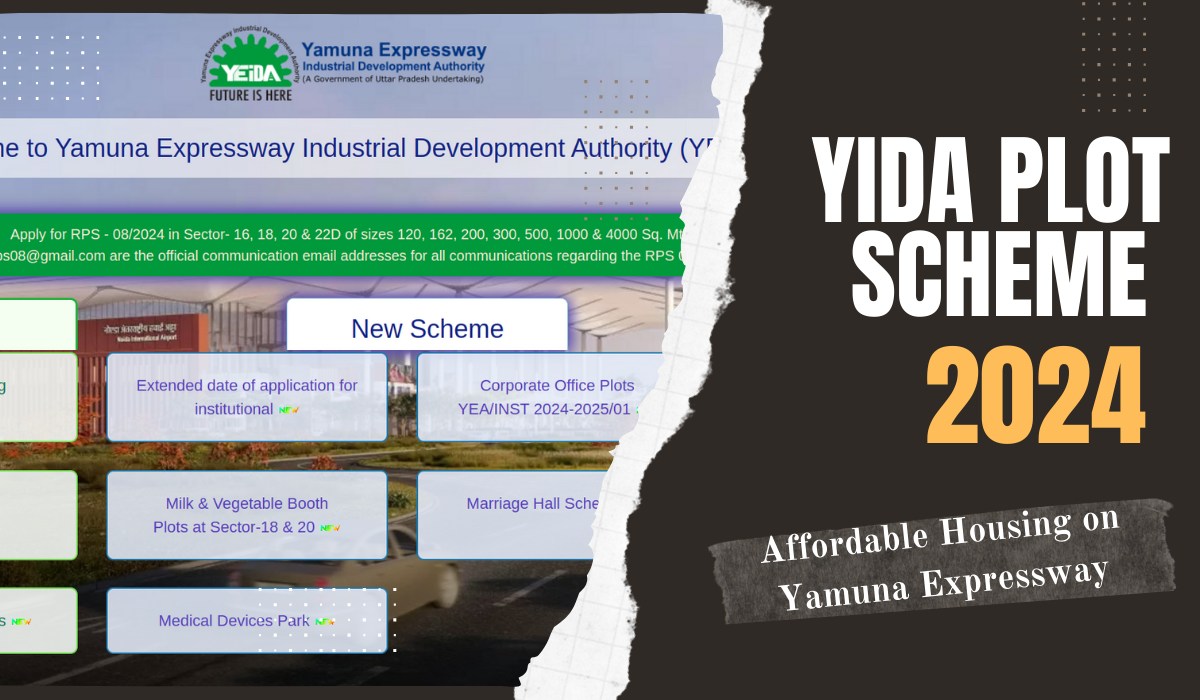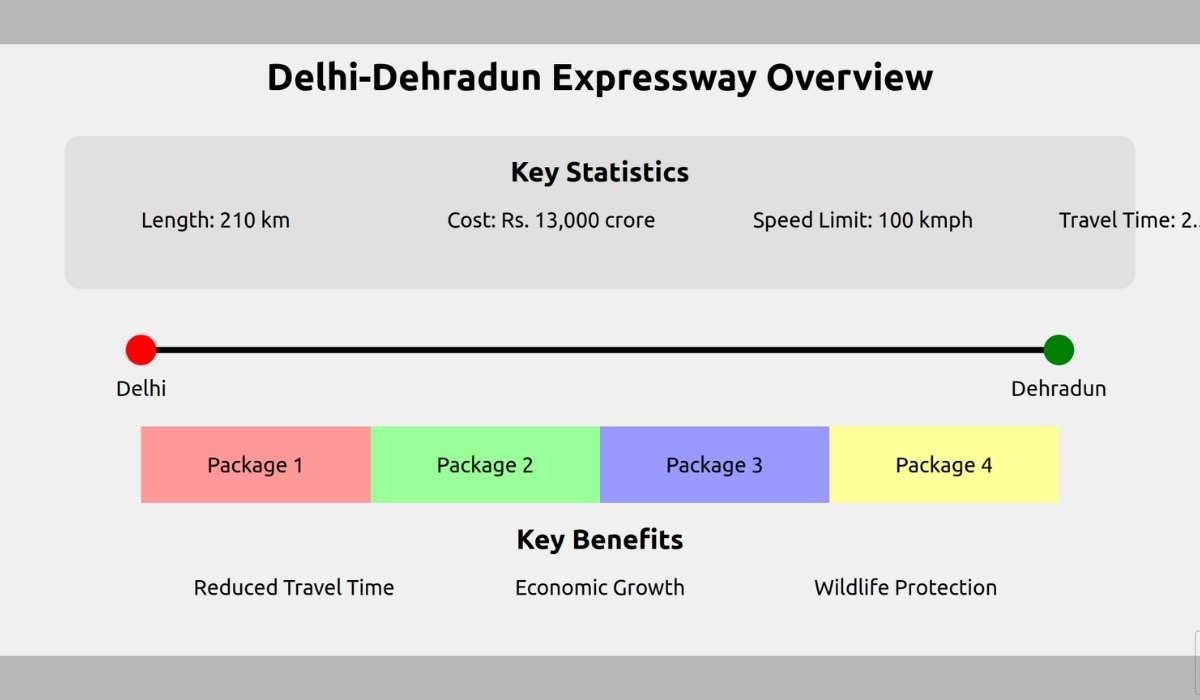Are you looking to invest in one of India’s most promising real estate markets? Look no further than Yamuna Authority plots. As the region between Greater Noida and the upcoming Jewar Airport undergoes rapid development, savvy investors are turning their attention to the opportunities presented by the Yamuna Expressway Industrial Development Authority (YEIDA). In this comprehensive guide, we’ll explore everything you need to know about investing in Yamuna Authority plots, from available sectors to registration processes and investment strategies.
Understanding the Yamuna Authority: A Gateway to Growth
The Yamuna Expressway Industrial Development Authority, commonly known as the Yamuna Authority, is a government body tasked with developing the region along the Yamuna Expressway. As a subsidiary of the UP Government, YEIDA is responsible for creating residential, commercial, institutional, and industrial areas in this burgeoning corridor.
With the upcoming Jewar Airport set to transform the region’s landscape, investing in Yamuna Authority plots has become an increasingly attractive proposition for both investors and end-users alike. But before you dive in, it’s crucial to understand the nuances of this unique real estate market.
Exploring Available Residential Sectors and Plot Sizes
YEIDA offers a diverse range of residential sectors with various plot sizes to cater to different investor needs. Let’s take a closer look at the major residential sectors and their available plot sizes:
Sector 18: The Pioneer
- Oldest allotment (2009)
- Plot sizes: 60, 90, 120, 162, and 300 square meters
Sector 20: The Spacious Option
- Allotted in 2009
- Plot sizes: 300, 500, 1000, 2000, and 4000 square meters
Sector 17: The Emerging Favorite
- Plot sizes: 200 and 162 square meters
- 120 square meter plots have started development and registries
Sector 22D: The Compact Choice
- Plot sizes: 120 and 162 square meters
Sector 16: The Up-and-Coming
- Various plot sizes, including 120 and 162 square meters
- Development started, but registries yet to begin
Registered vs. Non-Registered Plots: Understanding the Difference
When investing in Yamuna Authority plots, it’s essential to understand the distinction between registered and non-registered plots:
Registered Plots
- Authority has physically handed over the plot
- Lease deed executed in the allottee’s name
- Typically 10 lakh rupees more expensive than non-registered plots
- Preferred by end-users
Non-Registered Plots
- Lease deed not executed in the allottee’s name
- Special relaxation for 2009 allotment in sectors 18 and 20 (plots 300 square meters and above can be transferred)
- Preferred by investors due to lower costs and higher profit potential
Both types of plots are safe and documented by the authority, but there are some key differences to consider:
Unlock Your Dream Home Today!
Get personalized real estate insights delivered straight to your inbox.
- Bank loans are not available for non-registered plots (self-funding required)
- Transfer and deed expenses for registered plots: 8-10 lakh rupees
- Additional lease amount of 1.5 lakh rupees for non-registered plots during transfer
The Process of Transferring Non-Registered Plots
If you’re considering investing in non-registered Yamuna Authority plots, it’s crucial to understand the transfer process. There are two main scenarios:
1. Agreement to Lease
- Allottee pays approximately 1 lakh rupees for the agreement
- If sold, the agreement is surrendered (stamp paper not counted or adjusted)
- Property transferred to buyer’s name
- Authority issues a transfer letter to the buyer
- Lease deed executed in buyer’s name by authority managers
2. Registered Agreement to Sale (if no Agreement to Lease exists)
- Agreement based on the white value of the plot
- Registered at the registrar’s office (expenses: 2.5% of white value)
- Document submitted to the authority
- Authority issues transfer letter in buyer’s name
Best Sectors for Investing in Yamuna Authority Plots
When it comes to choosing the best sectors for investing in Yamuna Authority plots, three areas stand out:
- Sector 18’s 7D and 7E pockets: Considered the most premium location due to excellent connectivity, desirable locality, and advanced development.
- Sector 17’s C pocket: Well-connected with a 130-meter ring road and proximity to the institutional area.
- Sector 22D: Ranked third due to its mix of village plots, group housings, and high-rise buildings.
When evaluating sectors, consider factors such as:
- Connectivity
- Future projects
- Locality
- Current development status
Sectors 18 and 17 are particularly attractive due to their exclusive authority plotting, wide roads, and ample greenery, resulting in less traffic and a superior living environment.
Development Status: A Key Factor in Investment Decisions
The development status of Yamuna Authority sectors plays a crucial role in determining investment potential. Here’s a quick overview:
- Sectors 18 and 17: Significant development, with authority plotting, wide roads, and greenery
- Sector 22D: Mix of village plots, group housings, and high-rise buildings
- Sector 16: Development started, but registries yet to begin
How to Register a Plot in Yamuna Authority
For those wondering how to register a plot in Yamuna Authority, the process is straightforward:
- Wait for the authority to physically hand over the plot
- Pay the necessary fees
- Submit required documents to the authority
- Execute the lease deed in your name
Note: Plots less than 300 square meters can only be transferred after registration.
Investment Strategies: Maximizing Your Returns
To make the most of your investment in Yamuna Authority plots, consider the following strategies:
- Focus on well-developed sectors: Prioritize sectors 18 and 17 for their advanced infrastructure and amenities.
- Consider plot size carefully: Larger plots (300 square meters and above) offer more flexibility in terms of transfer and development options.
- Evaluate registered vs. non-registered plots: Weigh the pros and cons based on your investment goals and financial situation.
- Keep an eye on future developments: Stay informed about upcoming projects, especially those related to the Jewar Airport, which could significantly impact property values.
- Diversify your portfolio: Consider investing in different sectors and plot sizes to spread risk and maximize potential returns.
The Jewar Airport Factor: A Game-Changer for Yamuna Authority Investments
The upcoming Jewar Airport is set to be a major catalyst for growth in the Yamuna Authority region. As one of the largest airports in Asia, it’s expected to drive significant economic development and boost property values in the surrounding areas. Investors looking to capitalize on this growth should consider Yamuna Authority plots near the airport site, particularly in sectors with good connectivity and ongoing development.
Key Takeaways for Yamuna Authority Plot Investors
As we wrap up our comprehensive guide to investing in Yamuna Authority plots, let’s recap the key points:
- YEIDA is developing a prime region between Greater Noida and Jewar Airport
- Various residential sectors offer plot sizes ranging from 60 to 4000 square meters
- Understanding the differences between registered and non-registered plots is crucial
- Sectors 18 (7D and 7E pockets) and 17 (C pocket) are top investment choices
- Consider factors like connectivity, future projects, and development status when choosing a sector
- The upcoming Jewar Airport is expected to significantly boost property values in the region
Seizing the Opportunity in Yamuna Authority Plots
Investing in Yamuna Authority plots presents a unique opportunity to be part of one of India’s most promising real estate markets. With careful consideration of sectors, plot sizes, and registration status, investors can position themselves to benefit from the region’s rapid growth and development.
As the Yamuna Expressway corridor continues to evolve, particularly with the advent of the Jewar Airport, the potential for substantial returns on investment in Yamuna Authority plots is significant. By leveraging the insights and strategies outlined in this guide, you can make informed decisions and maximize your investment potential in this dynamic market.
Call to Action: Ready to explore investment opportunities in Yamuna Authority plots? Don’t miss out on this chance to be part of the region’s growth story. For personalized advice and the latest updates on available plots, reach out to our team of experts. Contact us on WhatsApp: 898-898-6363
Take the first step towards a lucrative real estate investment in one of India’s most promising regions. Our team is ready to guide you through the process and help you find the perfect Yamuna Authority plot for your investment goals.
The Yamuna Expressway Industrial Development Authority (YEIDA), commonly known as the Yamuna Authority, is a government body responsible for developing the region along the Yamuna Expressway, creating residential, commercial, institutional, and industrial areas.
YEIDA offers various residential sectors, including Sector 18, Sector 20, Sector 17, Sector 22D, and Sector 16, each with different plot sizes ranging from 60 to 4000 square meters.
Registered plots have a lease deed executed in the allottee's name, while non-registered plots do not. Registered plots are typically more expensive and preferred by end-users, whereas non-registered plots are favored by investors for their lower costs.
To register a plot, you need to wait for the authority to physically hand over the plot, pay the necessary fees, submit required documents, and execute the lease deed in your name.
Sectors 18 (particularly 7D and 7E pockets) and 17 (C pocket) are highly recommended due to their excellent connectivity and advanced development. Sector 22D is also a good investment option.
The Jewar Airport is expected to significantly boost economic development and property values in the Yamuna Authority region, making it an attractive area for investment.
Registered plots typically have transfer and deed expenses ranging from 8-10 lakh rupees, while non-registered plots involve an additional lease amount of 1.5 lakh rupees during transfer.
Investors should focus on well-developed sectors, consider larger plot sizes, evaluate the pros and cons of registered vs. non-registered plots, monitor future developments, and diversify their portfolio.
For non-registered plots, the transfer can occur through an Agreement to Lease or a Registered Agreement to Sale, where fees and documentation requirements vary.
You can stay informed by contacting experts or following updates through platforms that provide the latest information on available plots in the Yamuna Authority region.
DISCLAIMER
The information provided on this website is for general informational purposes only. While we strive to keep the content up-to-date and accurate, we make no representations or warranties of any kind, express or implied, about the completeness, accuracy, reliability, suitability, or availability of the information, products, services, or related graphics contained on this website.
In no event will we be liable for any loss or damage including without limitation, indirect or consequential loss or damage, or any loss or damage whatsoever arising from loss of data or profits arising out of, or in connection with, the use of this website.
Real Estate Investment Risks
Real estate investments involve significant risks and market volatility. Property values, rental rates, and market conditions can fluctuate. Past performance is not indicative of future results.
Before Making Real Estate Decisions
Before making any real estate decision, we strongly advise you to:
- Conduct thorough due diligence
- Consult with qualified legal, financial, and real estate professionals
- Carefully review all relevant documents and contracts
- Consider your personal financial situation and investment goals
This website does not provide legal, financial, or investment advice. All content is for informational purposes only and should not be construed as professional advice or recommendations.
By using this website, you acknowledge and agree to these terms. We reserve the right to modify this disclaimer at any time without notice.







